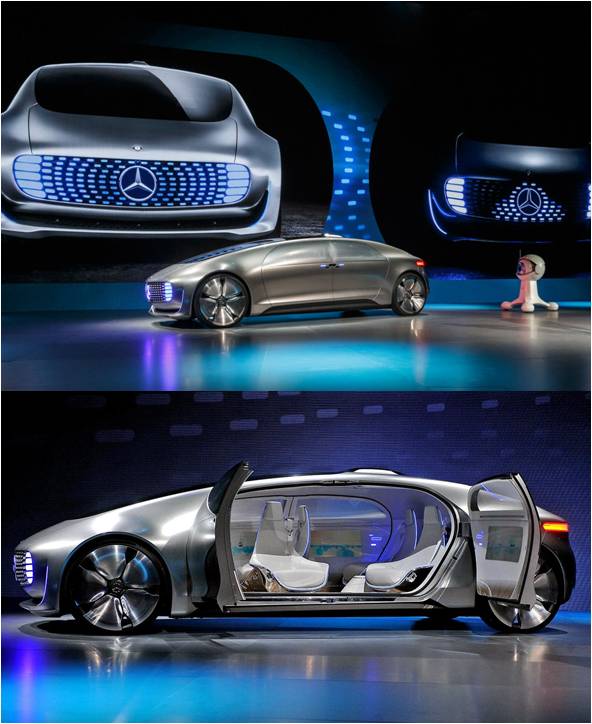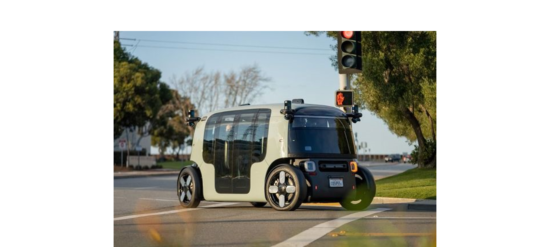January 21, 2015 – Happy to welcome back Jessica Oaks as guest blogger here at 21st Century Tech blog. Jessica is a freelance journalist with a passion for technology news. She focuses on how technology can make our lives easier and blogs at FreshlyTechy.com. You can also check her out on Twitter @TechyJessy. In this latest contribution Jessica looks at the latest technology on display at the recently concluded Las Vegas Consumer Electronics Show (CES) and makes some interesting observations. Enjoy her contribution.
———-
Technology is ever changing – it is the byproduct of a field of thought (a field which includes design and engineering) driven by unceasing innovation. And it has a hugely impactful role in our lives. Technology is so ever-present that it’s not a question of whether technology will continue to evolve over time, but in what way will it evolve. How will technology continue to impact our lives? What shape will it take, both physical and digital? And what roles will it take on that it currently does not?
Pondering these questions is the job of technology companies sure – companies like Apple, Google, GE, and Tesla. But it’s also a job for consumers, politicians, city planners, scientists, and educators. Ultimately, technology is a reflection of a society’s needs and wants. So what does the future hold? Based on early indicators, it appears that technology may take on the following roles in the near and middle future.
The Future is the Automobile
One of the best places to get an idea of what the future of technology might hold is at CES, the Consumer Electronics Show. This yearly gathering in Las Vegas sees everything from the forgettable and unnecessary to the truly unbelievable and revolutionary. For every gadget that you don’t need or want, there are announcements, surprise launches, and demonstrations from some of the largest technology companies on the planet. This year at CES, the star of the show was a bit unexpected: the automobile.
How is it that a technology which recently celebrated its 100th birthday came to be the most important thing at a show that purports to highlight the future? Sure, cars are becoming more and more connected, and yes, companies like Tesla, BMW, Toyota and Honda are continuing the push the boundaries of electric and alternative fuel vehicle technology, but none of these things were the reason for the car being placed atop a pedestal at CES – automation was.
Google, decidedly not a car company, introduced its self-driving car back in May of 2014, and the public took notice. In fact, so did other manufacturers. Executives from both Mercedes-Benz and Ford, two of the heavy weights of the automotive industry, made keynote speeches at this year’s CES, in which they expressed their belief that fully autonomous vehicles could be available in as little as five years – and they even showed off concepts themselves. But it was Mercedes that stole the show with the Mercedes F-015 pictured below.
A concept car that Mercedes believes could be on the roads by 2030, it is ergonomically pleasing, state-of-the-art smart, electric powered, made of light composite materials, and autonomous as well. A minimized steering wheel, accelerator and brake pedals , displays that change based on observing where your eyes are looking, touch screen and voice connectivity, LED external lights that let pedestrians know they have been seen and that it is safe to cross in front of the vehicle, and salon seating that reconfigures the car into a private lounge. After all if you don’t drive the car why face forward?
But what does this mean for society? Well, that’s a big question. And certainly, global adoption of fully autonomous vehicles might be as many as 30, 50 or even 100 years away, although a number of countries are already testing the technology today. They are doing this because it’s hard not to see the benefits. With more of us living in cities and world population increasing, traffic will only get worse. Autonomous cars will communicate with each other so that bottlenecks will be minimized. Yes, we might be giving up some degree of our own autonomy, but with less vehicle accidents, and less injuries and fatalities (to drivers, passengers and pedestrians) we would open up private transportation to a new, previously underserved group of individuals, the blind and disabled, and make the very idea of personal vehicle ownership outdated.




















[…] Mercedes-Benz F-015 concept car is made of composite materials, all electric, autonomous, and smart. May be on the road by 2030. […]